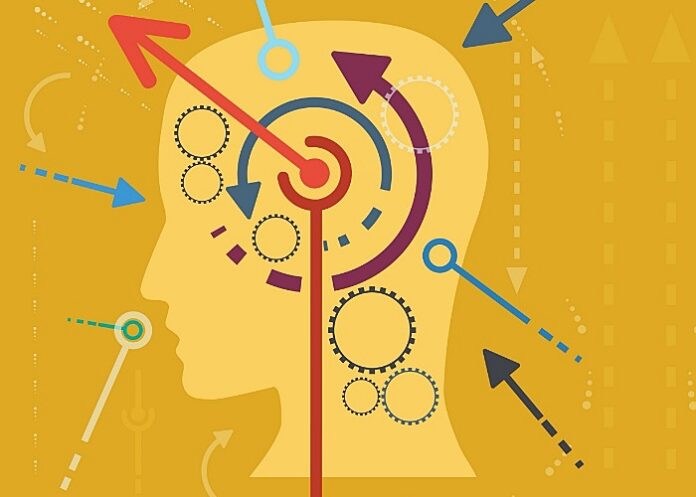An Anglo-Canadian study found “strong evidence” that iketamine provides rapid and robust anti-depressant and anti-suicidal effects, but the effects were relatively short-lived. “However, repeated dosing appeared to have the potential to increase the duration of positive effects,” writes the lead author.
First manufactured more than 50 years ago, ketamine is a fast-acting dissociative anaesthetic often used in veterinary and emergency medicine. It also has a history of being an illicit party drug.
Researchers from the University of British Columbia Okanagan campus and the University of Exeter, Britain, have identified ketamine as a potentially powerful tool in the fight against mental illness.
In a study published in the British Journal of Psychiatry, the research team found ketamine to have significant anti-depressant and anti-suicidal effects. They also found evidence that suggests its benefits don’t stop there.
Led by psychology professor Dr Zach Walsh and doctoral student Joey Rootman – both based in the Irving K. Barber Faculty of Arts and Social Sciences – the research team arrived at this conclusion after analysing more than 150 worldwide studies on the effects of sub-anaesthetic ketamine doses for the treatment of mental illness. The study was co-led by Professor Celia Morgan and doctoral student Merve Mollaahmetoglu from the University of Exeter in the United Kingdom.
“We found strong evidence that indicates ketamine provides rapid and robust anti-depressant and anti-suicidal effects, but the effects were relatively short-lived,” said Rootman. “However, repeated dosing appeared to have the potential to increase the duration of positive effects.”
Beyond these results, the study provides evidence that suggests ketamine may be helpful in the treatment of other disorders, including eating disorders, problematic substance use, post-traumatic stress and anxiety, though the evidence in these areas is scarce.
“What our research provides is an up-to-date overview and synthesis of where the knowledge on ketamine is at right now,” said Rootman. “Our results signal that ketamine may indeed have a broader spectrum of potential applications in psychiatric treatment, and that tells us that more investigation is needed.”
This study serves as a foundation for fellow researchers looking to design ketamine-related projects and offers valuable data for clinicians considering using ketamine with their patients.
The results also help to satisfy the public’s appetite for information on innovative and emerging psychiatric treatments, says Walsh, adding that the review provides a relatively compact document with evidence regarding which ketamine treatments may be helpful for diverse diagnoses.
“As many as one in five Canadians will experience a mental illness this year, and the reality is that existing treatments don’t work for everyone,” he says. “As a result, many Canadians are curious about new approaches to help with these serious conditions.” Overall, while he acknowledges research into other treatment areas is just beginning, he finds the preliminary evidence encouraging.
“We need a lot more information on how these interventions could work; for example, administering the drug is only a part of treatment. We need to figure out what amount and type of psychotherapy would best complement the drug intervention to really maximise potential benefits,” he said. “With that being said, it is a truly exciting time for ketamine research. If it can deliver the relief that early evidence suggests it can, this could be among the most significant developments in mental health treatment in decades.”
Study details
Ketamine for the treatment of mental health and substance use disorders: comprehensive systematic review
Zach Walsh, Ozden Merve Mollaahmetoglu, Joseph Rootman, Shannon Golsof, Johanna Keeler, Beth Marsh, David Nutt, Celia Morgan.
Published in the British Journal of Psychiatry on 23 December 2021
Abstract
Background
In the past two decades, subanaesthetic doses of ketamine have been demonstrated to have rapid and sustained antidepressant effects, and accumulating research has demonstrated ketamine's therapeutic effects for a range of psychiatric conditions.
Aims
In light of these findings surrounding ketamine’s psychotherapeutic potential, we systematically review the extant evidence on ketamine's effects in treating mental health disorders.
Method
The systematic review protocol was registered in PROSPERO (identifier CRD42019130636). Human studies investigating the therapeutic effects of ketamine in the treatment of mental health disorders were included. Because of the extensive research in depression, bipolar disorder and suicidal ideation, only systematic reviews and meta-analyses were included. We searched Medline and PsycINFO on 21 October 2020. Risk-of-bias analysis was assessed with the Cochrane Risk of Bias tools and A Measurement Tool to Assess Systematic Reviews (AMSTAR) Checklist.
Results
We included 83 published reports in the final review: 33 systematic reviews, 29 randomised controlled trials, two randomised trials without placebo, three non-randomised trials with controls, six open-label trials and ten retrospective reviews. The results were presented via narrative synthesis.
Conclusions
Systematic reviews and meta-analyses provide support for robust, rapid and transient antidepressant and anti-suicidal effects of ketamine. Evidence for other indications is less robust, but suggests similarly positive and short-lived effects. The conclusions should be interpreted with caution because of the high risk of bias of included studies. Optimal dosing, modes of administration and the most effective forms of adjunctive psychotherapeutic support should be examined further.
See more from MedicalBrief archives:
Ketamine and psychotherapy helps alcohol abusers to abstain – UK study
The benefits of ketamine for selected psychiatric patients
Repeated ketamine infusions reduce PTSD symptom severity
Ketamine promising in treating major depression and suicidal thoughts
Ketamine's opioid-like qualities raise addiction fears for depression treatment
Ketamine free-for-all sparks concern in US

